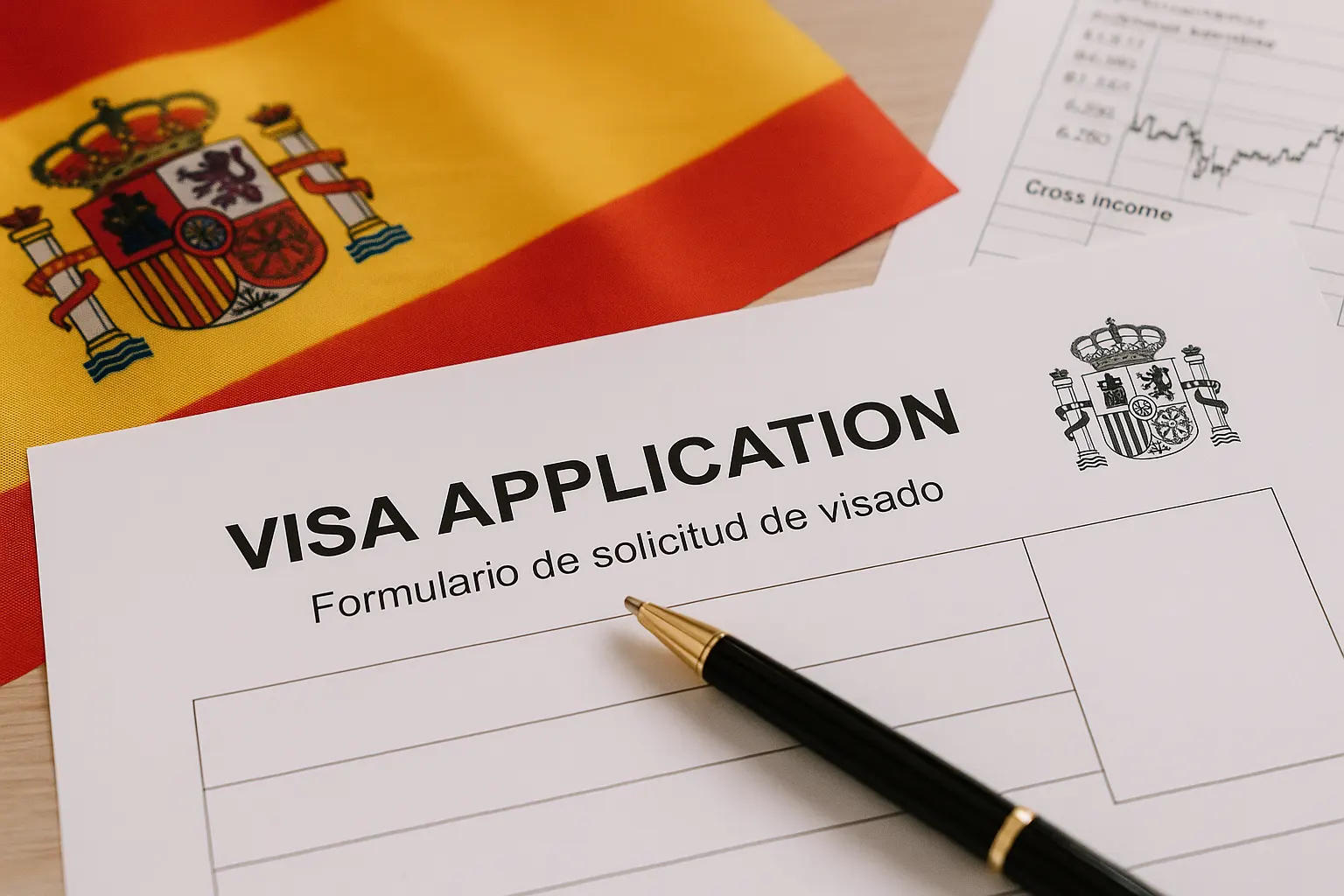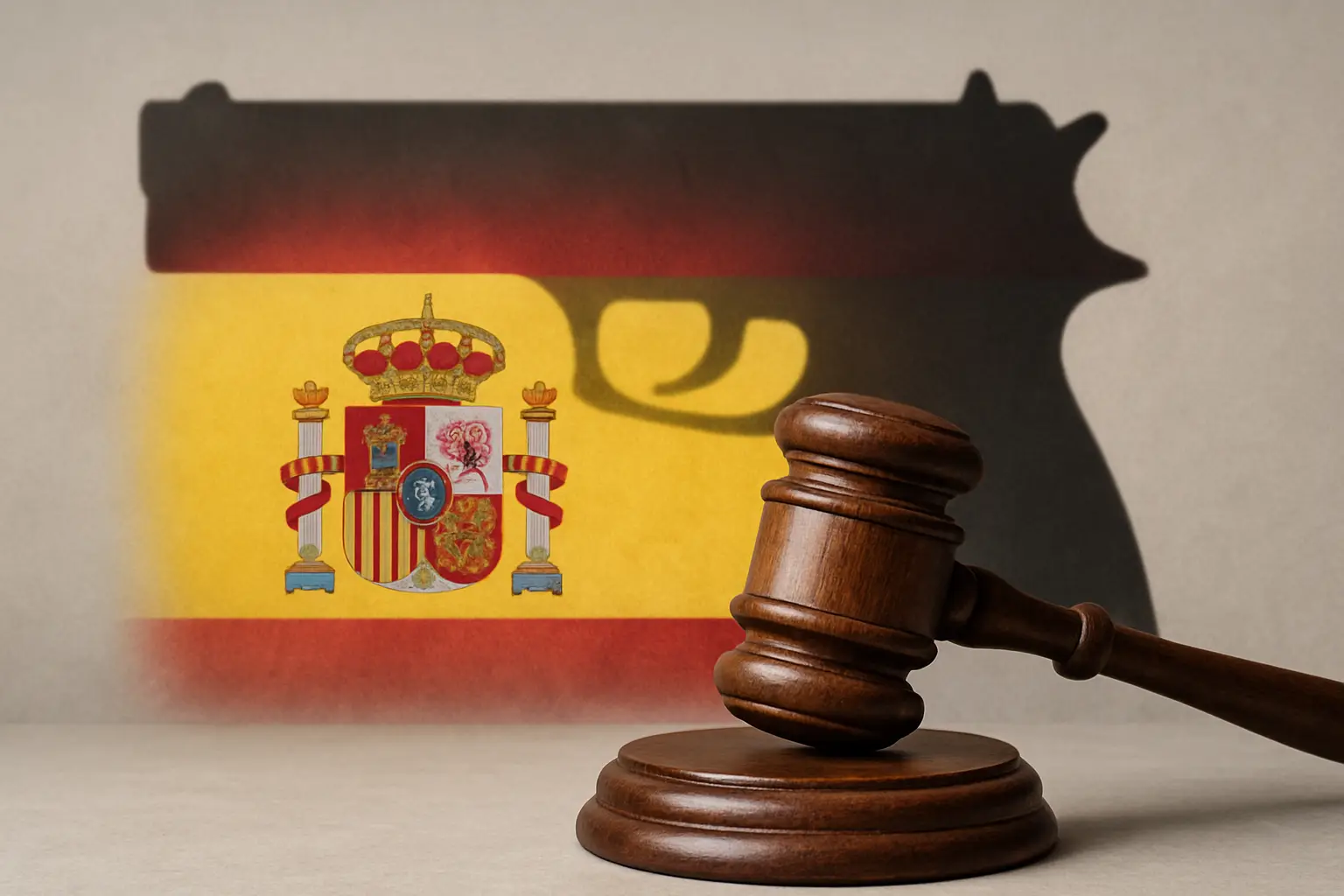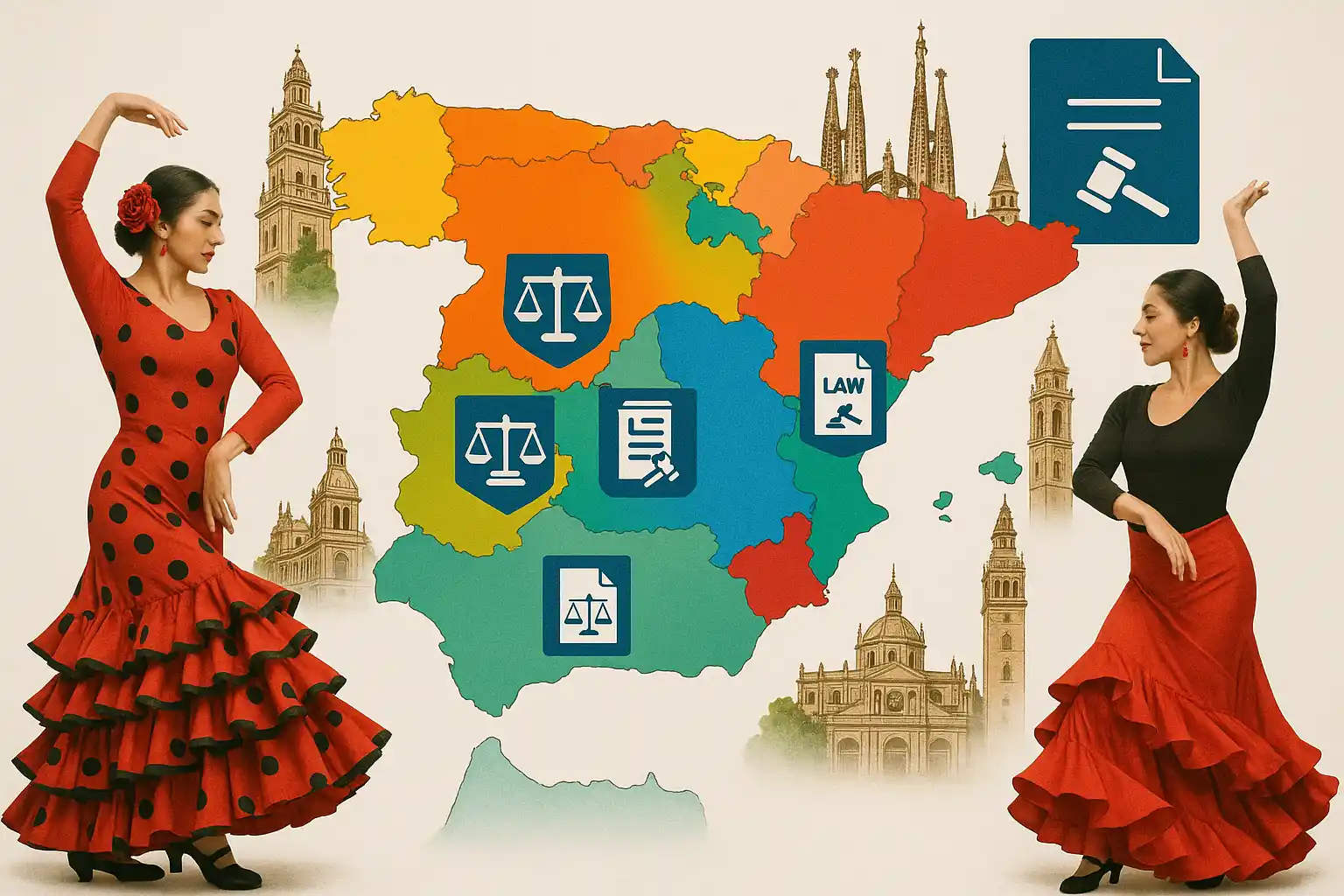UGE has explicitly confirmed that applicants holding a U.S. W-2 employment contract are indeed eligible to apply for Spain’s Digital Nomad Visa. While there are some administrative steps and documentation requirements to consider, this official statement from the Spanish government offers clear guidance and reassurance for W-2 employees seeking to obtain the visa.
The rise of digital nomadism has transformed how professionals live and work across borders. Spain responded to this global shift by launching the Spain Digital Nomad Visa in 2023, embedded within the Startup Act. This visa invites remote workers to enjoy Spain’s vibrant culture while legally working from abroad.
Choosing the right employment model—EOR vs W2 vs 1099—is crucial for compliance with Spanish immigration rules and securing visa approval. Each model presents unique implications for tax, legal obligations, and documentation needed by authorities.
This article will help you:
- Understand Spain’s Digital Nomad Visa requirements and benefits
- Learn key differences between EOR, W2, and 1099 employment models
- Compare how each impacts visa success, tax responsibilities, and worker protections
- Identify the best fit for your remote work Spain plans
Empower your application with expert insight to navigate this exciting opportunity confidently.
Understanding the Spain Digital Nomad Visa
To fully grasp the potential of Spain’s Digital Nomad Visa, it’s essential to understand its requirements and benefits. This visa not only allows you to live in Spain but also provides a unique opportunity to immerse yourself in its rich culture while working remotely.
Switching from Tourist to Digital Nomad Visa
If you are already in Spain on a tourist visa and wish to switch to a digital nomad visa, there are specific steps you need to follow. Our guide on how to switch from a tourist visa to Spain’s Digital Nomad Visa provides step-by-step guidance and legal tips for remote work.
Employment Models: EOR vs W2 vs 1099
Choosing the right employment model is crucial for compliance with Spanish immigration rules. The EOR (Employer of Record), W2, and 1099 models each present unique implications for tax, legal obligations, and documentation needed by authorities. Understanding these differences will help you secure your visa approval smoothly.
Understanding Spain’s Digital Nomad Visa
The Digital nomad visa Spain requirements are designed to cater to remote workers looking to live and work in the country.
Eligibility Criteria
To qualify for this visa, applicants must meet certain eligibility criteria:
- An income threshold of approximately €2,760 per month.
- Professional background requirements related to the remote job.
- Health insurance prerequisites.
Application Process Overview
The application process can be initiated either through consulates or by filing a residency application from within Spain. However, it’s essential to avoid common mistakes when applying for the Spain Digital Nomad Visa online to ensure a smooth process.
Benefits of the Visa
This visa comes with several benefits:
- It is valid for one year, with renewal options available up to five years.
- Holders gain access to travel within the Schengen Area.
- There are specific tax considerations that could be advantageous.
For US citizens interested in this opportunity, there is a tailored guide on Spain’s Digital Nomad Visa for US citizens, which outlines the necessary steps and requirements for a seamless transition.
Employment Models Explained: EOR, W2, and 1099
What is W2?
W2 refers to a U.S.-based full-time employee model where employers withhold taxes from employees’ paychecks.
Employer Responsibilities:
- Employers are tasked with managing payroll taxes,
- providing benefits such as healthcare,
- retirement plans, and ensuring compliance with labor laws and regulations.
When considering employment models for the Spain Digital Nomad Visa, understanding the nuances of each option is crucial. In the case of W2 arrangements, employees benefit from the security and stability of traditional employment. With taxes automatically withheld by the employer, individuals can focus on their work without the hassle of managing tax obligations independently.
Employers play a significant role in ensuring compliance with tax laws and providing essential benefits that contribute to employees’ well-being. The structured nature of W2 arrangements provides a sense of security for both parties involved. For digital nomads seeking stability and formalized employment relationships while working under the Spain Digital Nomad Visa program, the W2 model offers a familiar structure that aligns with conventional employment practices.
What is a 1099?
A 1099 refers to a tax form used in the United States to report income earned by independent contractors or freelancers. Unlike traditional employees who receive a W-2 form from their employers, independent contractors are responsible for managing their own tax obligations.
Flexibility advantages of being a 1099 contractor
One of the main advantages of being classified as a 1099 contractor is the flexibility it offers. Here are some key benefits:
- Ability to set your own schedule: As an independent contractor, you have the freedom to choose when and how much you work. This flexibility allows you to create a work-life balance that suits your needs.
- Control over work location and environment: Unlike remote employees who may have specific requirements regarding their workspace, 1099 contractors can work from anywhere they choose. Whether it’s a cozy cafe or a beachside bungalow, you have the power to decide where you do your best work.
- Potential for higher earnings: Depending on the nature of your projects and the number of clients you take on, being an independent contractor can lead to higher earnings compared to traditional employment. Since your income is directly tied to the volume of work you complete, there is potential for growth based on your efforts.
Challenges for visa documentation and compliance
While there are advantages to being classified as a 1099 contractor, it’s important to consider the challenges it may pose when it comes to visa documentation and compliance:
- Difficulty in providing stable income proof: When applying for certain visas or permits, such as the Spain Digital Nomad Visa program, applicants are often required to provide proof of stable income. This can be challenging for independent contractors who may not have consistent earnings compared to formal employers with W-2 or Employer of Record (EOR) setups.
- Additional paperwork for self-employment status: Under the Spain Digital Nomad Visa program, self-employed individuals may need to submit additional documentation to demonstrate their self-employment status. This could include contracts with clients, invoices issued, or bank statements showing incoming payments.
In summary, opting for a 1099 model offers flexibility and autonomy but may present challenges in meeting visa requirements and demonstrating financial stability.
What is an Employer of Record (EOR)?
An Employer of Record (EOR) is a service that allows companies to hire remote workers in different countries without having to establish a legal entity there. The EOR acts as the official employer, handling all employment-related responsibilities such as payroll, taxes, and compliance with local labor laws.
However, it’s important to note that using an Employer of Record (EOR) is not a viable option for the Spain Digital Nomad Visa. Spanish authorities do not recognize EOR arrangements as legal employment for visa purposes, and contracts issued through an EOR are often not accepted during the application process. Applicants must demonstrate a direct employment relationship with a foreign employer or provide proof of self-employment, as required by Spanish immigration regulations. As a result, relying on an EOR structure can jeopardize your eligibility and may lead to the rejection of your visa application.
Comparing W2 vs 1099 for Spain Digital Nomad Visa Applicants
Legal Compliance and Visa Documentation Requirements
Navigating the digital nomad visa Spain requirements demands careful attention to how employment models impact legal compliance and documentation. Spanish authorities require applicants to prove remote work for Spain visa through verifiable contracts and employer consent letters. The type of work contract— W2, or 1099—plays a critical role in meeting these conditions.
1. W2 Employees
As traditional full-time employees under U.S.-based employers, W2 workers benefit from formal employer documentation. Payroll records, tax withholdings, and official employer letters provide clear evidence of stable employment and income. This structure aligns well with the visa’s requirement to demonstrate consistent remote work.
- Employers handle tax deductions and benefits, strengthening the applicant’s ability to satisfy Spanish immigration authorities on both income stability and legal employment status.
2. 1099 Independent Contractors
Freelancers or contractors operating under a 1099 arrangement face more complex challenges when attempting to prove stable income and continuous remote work. Unlike W2 employees, they manage their own taxes without employer withholding or payroll documentation.
- This lack of centralized paperwork may complicate submission of contracts or proof of earnings required by Spain’s digital nomad visa program.
- Authorities often scrutinize independent contractors more closely due to variable income streams and less formalized employment relationships.
Legal compliance with prove remote work for Spain visa stipulations not only facilitates smoother application processes but also aligns with tax rules digital nomads Spain must adhere to once residency is granted. Selecting an employment model that harmonizes with Spanish administrative expectations can substantially streamline your journey toward obtaining the visa.
Tax Implications While Living in Spain
Understanding the tax rules that digital nomads in Spain must follow is a crucial step when deciding on the best work contract for digital nomad visa applications. Spain’s tax system introduces specific considerations that directly impact your financial obligations and compliance under the Spanish tax regime for digital nomads.
Key factors include:
- Spanish Tax Residency:
- Individuals spending more than 183 days in Spain within a calendar year generally become tax residents. This status requires reporting worldwide income to Spanish authorities, influencing how you manage your remote work earnings.
- Flat Tax Rate Regime:
- New residents benefiting from the digital nomad visa Spain requirements can apply for a special flat tax rate of 24% on income up to €600,000 during the first four years of residency. This incentive aims to attract international talent by simplifying taxation and reducing burdens.
- Differences Between Employment Models:
- W2 Employees: Taxes are withheld directly by the employer, aligning with U.S. payroll processes but potentially complicating Spanish tax filings unless coordinated with local tax advisors.
- 1099 Contractors: Responsible for managing their own tax payments, including social security contributions and income taxes, which demands detailed record-keeping and proactive compliance efforts. Proving consistent income to satisfy visa criteria can also be more complex.
Understanding these distinctions helps applicants prove remote work for Spain’s digital nomad visa requirements effectively while maintaining compliance with the country’s evolving tax landscape.
Employment Benefits and Protections
Choosing the right work contract model directly influences the employment benefits digital nomads receive and the level of legal protection under Spanish labor laws. Navigating the digital nomad visa Spain requirements means understanding how each setup aligns with social security, health insurance, and worker rights.
Social Security Contributions
- W2 Employees: Contributions are typically handled by U.S. employers, which may not satisfy Spanish social security requirements without additional arrangements. This can complicate proving compliance with Spain’s social security system.
- 1099 Contractors: Independent contractors are responsible for their own social security payments, often outside Spain’s framework, risking gaps in coverage and challenges to meet visa conditions requiring proof of adequate insurance.
Health Insurance Coverage
Spanish authorities require valid health insurance for visa approval. While freelancers (1099) must secure private plans independently, W2 employees might rely on employer-provided U.S.-based insurance that may lack coverage in Spain. An EOR typically offers local or international health insurance aligned with visa conditions, simplifying the process to prove remote work for Spain visa via documented benefits.
Ease of Use and Administrative Burden
When applying for the digital nomad visa in Spain, it’s crucial to consider the administrative burden associated with each employment model. Here are key points to keep in mind:
Freelancers (1099):
Challenges:
- Self-reporting may be required, potentially adding complexity.
- Proving stable income without formal employer documentation can be a hurdle.
W2 Employees:
Complications:
- Working remotely from abroad may lack local registration support.
By understanding these nuances, applicants can make informed decisions on the most suitable work contract model that aligns with their needs while navigating the administrative requirements seamlessly.
Choosing the Best Work Contract Model for Your Digital Nomad Visa in Spain
Deciding on the best work contract for digital nomad visa applications depends heavily on your personal and professional circumstances. Each employment model—EOR, W2, or 1099—offers distinct advantages and challenges that influence compliance, tax obligations, and visa success.
Factors to Consider Based on Your Situation
1. Control Over Taxes vs Ease of Compliance
If managing your own tax filings appeals to you, the 1099 independent contractor model allows maximum control but requires diligence in tracking income and expenses. This autonomy means you must be prepared to handle Spanish tax residency rules and submit accurate declarations as part of your visa application.
The W2 employee model simplifies tax compliance because taxes are withheld by your U.S. employer; however, remote work from Spain can complicate local registration without an intermediary.
2. Length of Stay Plans
The Spain Digital Nomad Visa initially grants a one-year residence permit with renewable options up to five years. Those planning multi-year stays may benefit from an employment model that supports ongoing compliance without frequent renegotiation or additional paperwork. Freelance (1099) arrangements might require extra documentation to demonstrate continuous income over time.
3. Family Application Considerations
Bringing family members under the digital nomad visa program entails proving stable income and legal employment status. Formal contracts from an employer typically carry more weight in these cases compared to freelance agreements that could be scrutinized for irregularity. W2 contracts also offer clarity but might lack local legal recognition unless combined with Spanish registration processes.
4. How to Prove Remote Work for Spain Visa
Documentation is critical when applying for the digital nomad visa. Employer consent letters, signed contracts showing remote work arrangements, pay stubs or invoices reflecting consistent earnings—all play vital roles.
Exploring these factors helps you identify which work contract aligns best with your goals when choosing an employment model for remote work in Spain. Considering both legal compliance and practical lifestyle preferences ensures a smoother journey through the digital nomad visa process.














